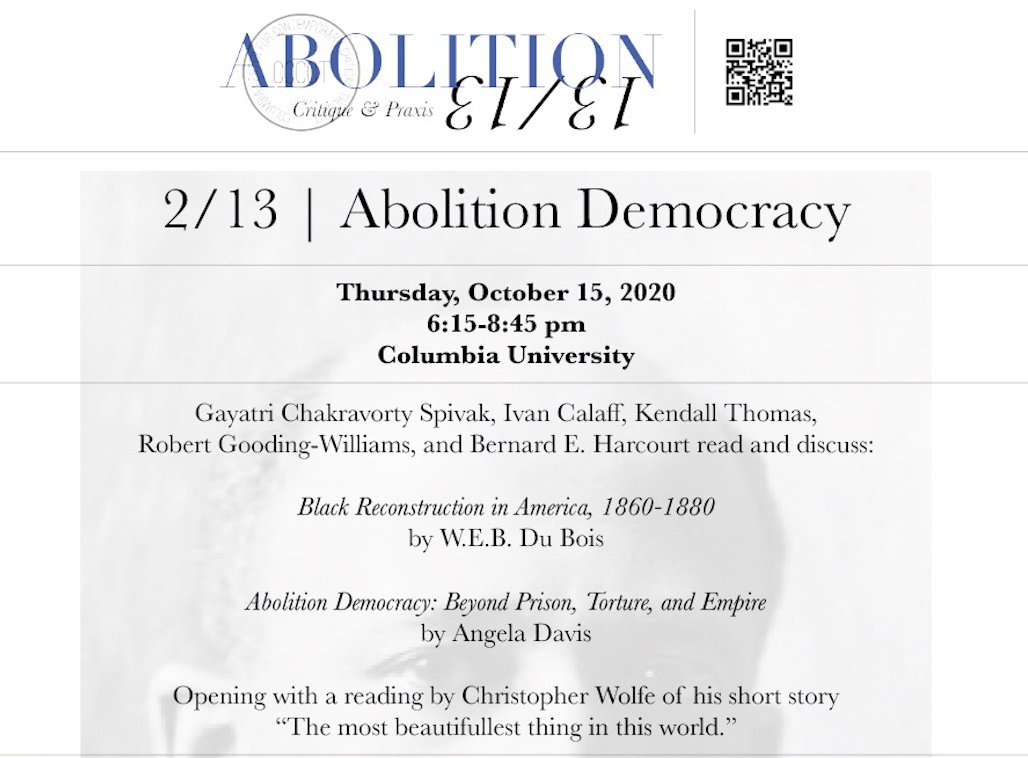
Visit http://blogs.law.columbia.edu/abolition1313/2-13-abolition-democracy/ to register
Bernard Harcourt, Columbia Center for Contemporary Critical Thought (CCCCT)
13/13 CCCT, Columbia Center for Contemporary Critical Thought (CCCCT)
The Society of Fellows and Heyman Center for the Humanities, The Institute for Comparative Literature and Society, and Columbia Global Center - Paris
Columbia Center for Contemporary Critical Thought (CCCCT) presents 2/13 | ABOLITION DEMOCRACY
Gayatri Chakravorty Spivak, Ivan Calaff, Kendall Thomas, Robert Gooding-Williams, and Bernard E. Harcourt read and discuss:
Black Reconstruction in America, 1860-1880 by W.E.B. Du Bois
Abolition Democracy: Beyond Prison, Torture, and Empire by Angela Davis
“Envisioning Abolition: Sex, Citizenship, and the Racial Imaginary of the Killing State” by Kendall Thomas
This session will open with a reading by Christopher Wolfe of his personal essay: “The most beautifullest thing in this world.”
About the seminar:
This seminar will explore the theoretical lens of “Abolition Democracy” originally coined by W.E.B. Du Bois and later interpreted by Angela Davis, as a way to think critically about the different struggles for abolition, both historically and in their current context.
“According to Du Bois, to be meaningful, abolition required more than the simple eradication of slavery; abolition ought to have been a positive project as opposed to a merely negative one. Du Bois wrote that simply declaring an end to a tradition of violent forced labor was insufficient to abolish slavery. Abolition instead required the creation of new democratic forms in which the institutions and ideas previously implicated in slavery would be remade to incorporate those persons formerly enslaved and to enable a different future for all members of the polity. To be meaningful, the abolition of slavery required fundamentally reconstructing social, economic and political arrangements. In the aftermath of slavery in the United States, reconstruction fell far short of this mark in many respects, and criminal law administration played a central role in the brutal afterlife of slavery. The work of abolition remained then—and arguably still remains today—to be completed. Confronting criminal law’s continuing violence is an important part of that undertaking.”
— Allegra McLeod, “Prison Abolition and Grounded Justice” (2015)
Watch a short 8-minute trailer to Abolition 2/13
Abolition 13/13 information, including bibliographies, can be found here.







